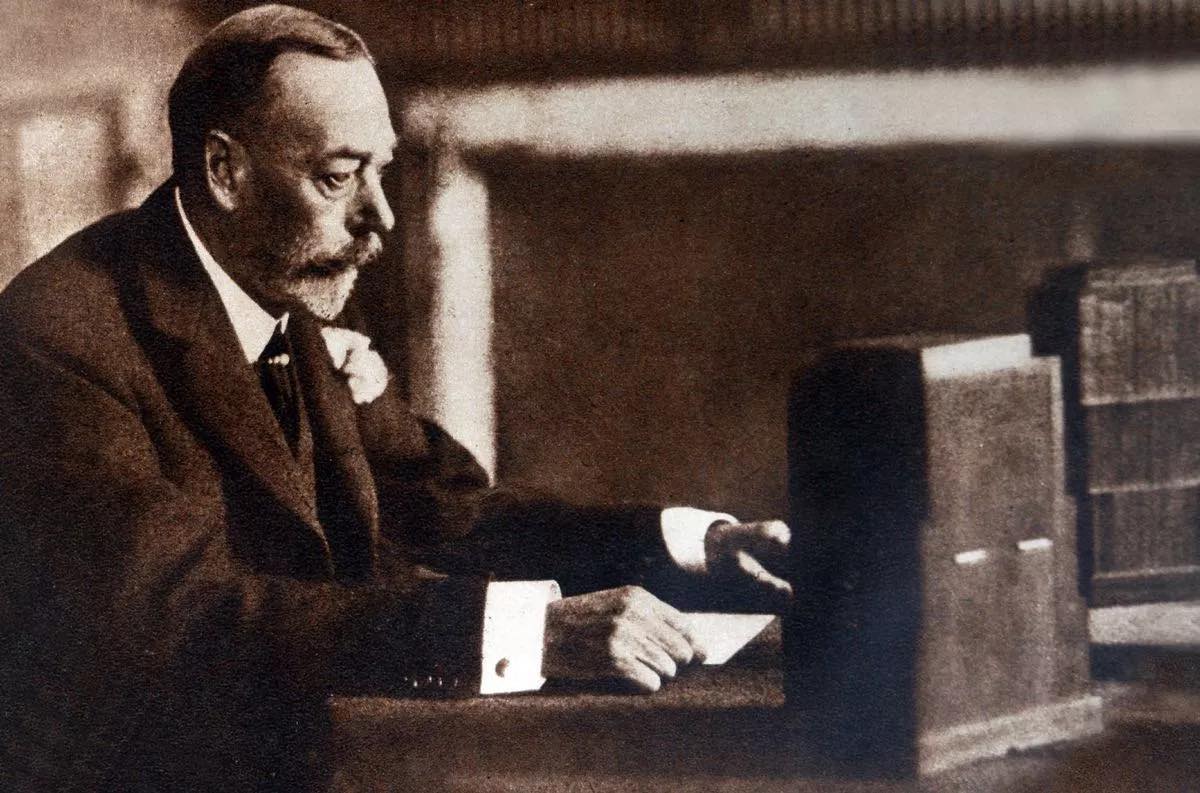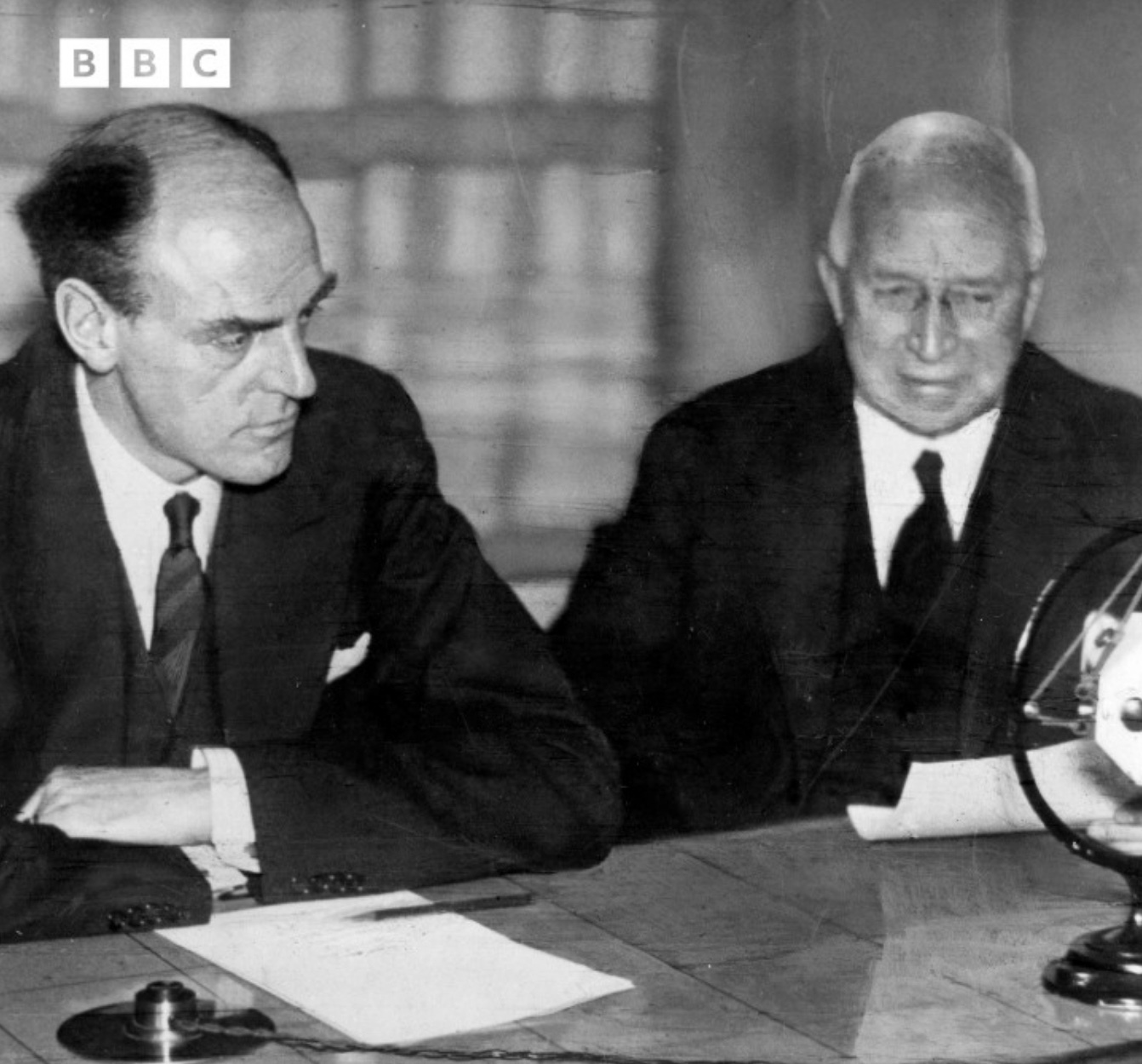The BBC Empire Service
- 19 December 1932 Inaugural broadcast of the BBC Empire Service on shortwave from Daventry's Borough Hill.
- 25 December 1932 King George V becomes the first monarch to deliver a Christmas Day message by radio, on the Empire Service
- 3 January 1938 The first foreign-language service was launched in Arabic.
- 1 November 1939 Empire Service was renamed the BBC Overseas Service
- 2 September 1940 Burmese programming begins.
- 27 April 1941 Thai programming begins.
- 2 May 1941 Malay programming begins.
- 28 August 1944 Dutch for Indonesia and French for South-East Asia programming begins.
- 30 October 1949 Hebrew and Indonesian programming begins.
- 6 February 1952 Vietnamese programming begins.
- 3 April 1955 French for South-East Asia programming ends.

Before the Empire Service
A full decade before the BBC launched its Empire service, the BBC had already been broadcasting its programmes from London and reaching short-wave receivers in parts of South East Asia. Originally established in 1922 as the British Broadcasting Company, it became a public corporation through a 10-year, renewable Royal Charter and gave its first broadcast as the British Broadcasting Corporation on New Year's Day 1927.
The signing of the 1937 Royal Charter renewed the first objects for incorporation, but now included:
"(b) To develop and exploit the said broadcasting service and any such Licence as aforesaid in any such other directions and by any such other means and methods, as may for the time being be agreed with Our Postmaster General for the time being and in particular for the benefit of Our dominions beyond the seas and territories under Our protection and from time to time to obtain or agree to a renewal or extension or of any modifications of the terms and conditions contained in any such Licence as aforesaid as Our Postmaster General may from time to time be willing to gi'ant or agree to.
(c) To acquire any stations, plant and a~sets whi h may be necessary or convenient for carrying out the objects of the Corporation."
Within the time period of the signing of the new Charter, the BBC had already launched its Empire Service on 19 December 1932, helped by new short-wave radio technology and a new dedicated transmission tower in Daventry that allowed signals to be broadcast over vast distances. In John Reith's 1924 book, "Broadcast Over Britain," he had already imagined potential listeners across the Empire. (Robertson, 2012). In the book, Reith thought that great events and speeches coudl be "heard and shared alike by the favoured few who are present as by others hundreds or thousands of miles away , and as in due time by our countrymen in the very outposts of Empire." ( Reith, 1924 p, 220-1). The Empire service was meant to connect a "national community of listeners cattered across the world - a British diasporic audience. " ( Robertson, 2012).
British Imperialism had sent millions of native born citizens overseas, populating white settler dominions ( Canada, Australia, New Zealand and South Africa) or its varied colonial territories ( India, Carribean and parts of South East Asia).
In a lecture in 1933, Captain Graves articulated the key purpose of the Empire Service:
"to keep in touch with the isolated men in the back-of-beyond to whom any contact with this country would be a good thing." ( BBC WAC 1933c).
Despite gloomy predictions from the BBC's director-general John Reith - "The programmes will neither be very interesting nor very good", the broadcasts received praise, and were further boosted by the support of a Christmas message from George V (the first ever) to the Empire a few days later. The BBC broadcast on short wave for distant listeners from 1927 on an experimental basis from Chelmsford, and from December 1932 through a regular Empire Service from Daventry.

The "native audience" and funding for the Empire Service
It was not until the lead-up to World War II that addressing the "native audience" in the colonies became a significant focus. Even then, the General Overseas Services continued to prioritize the well-being of their initial target audience, the "white British exiles."
But by the end of 1942, the BBC had started broadcasts in all major European languages. The Empire Service was renamed the BBC Overseas Service in November 1939, supplemented by the addition of a dedicated BBC European Service from 1941. Funding for these services—known administratively as the External Services of the BBC—came not from the domestic licence fee but from government grant-in-aid (from the Foreign Office budget.)
Clearly, it would be unthinkable for Broadcasting House to be broadcasting to
Europe, at the taxpayer's expense, doctrines hopelessly at variance with the
foreign policy of His Majesty's Government; but for reasons which I hope will
commend themselves ... it appeared to the Government to be equally
undesirable that the Foreign Office should themselves become responsible for
the foreign services. In the first place, the conduct of a broadcasting service
requires a different sort of experience and imagination from the conduct of
diplomacy... Secondly, broadcasting is a fulltime job. Thirdly, and most
important of all, we believe that the foreign services will better retain the respect
of listeners abroad and of the public at home if, like the Home Services, they
are removed as far as possible from the danger of being used to push the
interests of political parties instead of the nation as a whole" (Hansard, House of Commons Debates, vo1.425, co1.1087, 16 July 1946).
The Cold War
In the 50's, an interesting angle for the independence of the BBC's Empire Service broadcasting especially to South East Asia , was given a lot of airplay in the House of Common Debates. A good example of the issues involved is a transcript of the debate on Thursday 29 June 1950 on the use of the relay stations in Ceylon.
Some excerpts:
Meanwhile, the British Broadcasting Corporation is broadcasting from a low-power station which is already in existence at Singapore, and the additional transmissions from the powerful station in Ceylon are a valuable supplement to the B.B.C.'s services to South-East Asia and the Far East generally. It will also include the broadcasting of programmes for the British Forces serving in that part of the world.
Since 1st April, 1949, the Ceylon Government have provided all the technical facilities for transmitting the programmes which are prepared by the British Broadcasting Corporation. The cost of the service will be paid by the Corporation out of its grant-in-aid for the overseas services. The present operations of the B.B.C. in Ceylon are covered by an interim agreement made in correspondance between the Corporation and my Department. The Agreement which is before the House is intended to provide for the continuation of the existing service until such time as the new station. Radio Malaya. is available.
The Agreement applies to the services from Ceylon, with necessary adaptations, the provisions relating to the operations of the overseas services from the United Kingdom which are contained in the British Broadcasting Corporation's Licence and Agreement dated 29th November, 1946, and approved by the House on 11th December, 1946. The Licence and Agreement relate solely to stations operating in the British Isles, and for the reason that the existing agreement deals only with stations operating in the British Isles, there has to be this new Agreement to deal with Radio Ceylon, which is now before the House for approval.
Ceylon (Broadcasting) Volume 476: debated on Thursday 29 June 1950
What becomes clear is the seeming inability of the BBC to control what was broadcast using the Ceylon relay station, as opposed to the stations in Singapore and Malaya.
Mr. Grimston:
The other point to which I wish to refer is the very large issue which is raised by the Agreement of the whole question of our broadcasts to the Far East. It is almost superfluous, particularly at present, with what must be in the mind of every hon. Member to over-stress the importance of broadcasting in the Far East. Paragraph 3 (2) of the Agreement sets out the way in which the Government responsibility for overseas broadcasts works. I think I should be giving a fair picture if I said that the Government take responsibility to prescribe the languages and times to be used for foreign broadcasts. It is laid down that the B.B.C. must consult such Departments as are specified by the Postmaster-General. Within this framework, the B.B.C. must then produce broadacsts which are in the national interest.
The question we now have to ask ourselves is what is the paramount national interest at present in the Far East. I would suggest that it is that the power of the radio should be used to the uttermost to stem the advance of Communism in the Far East. I do not believe that anyone on either side of the House would dispute that.
This raises the question of what type of broadcast is the most suitable and effective for this purpose. I do not pretend to be an expert, but I ask the House for a moment to look at what is now happening in the way of these broadcasts.
I understand that the B.B.C. project Britain, as one might term it, in accordance with what was laid down in the Government White Paper on Broadcasting Policy (Cmd. 6852) of July, 1946. That is the line upon which the B.B.C. is working, and I think it will be useful if I quote to the House exactly what that White Paper lays down. It says:
"As far as the content of the overseas services is concerned, the Government consider that great care should be taken to ensure the complete objectivity of the news bulletins which will form the kernel of all overseas broadcasts. The Corporation's reputation for telling the truth must be maintained and the treatment of an item in an overseas news bulletin must not differ in any material respect from its treatment in current news bulletins for domestic listeners."
I think it is important that the House should take note of the framework under which the B.B.C. are at present performing these broadcasts. What we have to note here is that under any reasonable definition this would exclude propaganda.
Further Reading: Webb, A. (2009). London calling: BBC external services, Whitehall and the cold war 1944-57 (Doctoral dissertation). https://core.ac.uk/download/pdf/30695768.pdf
